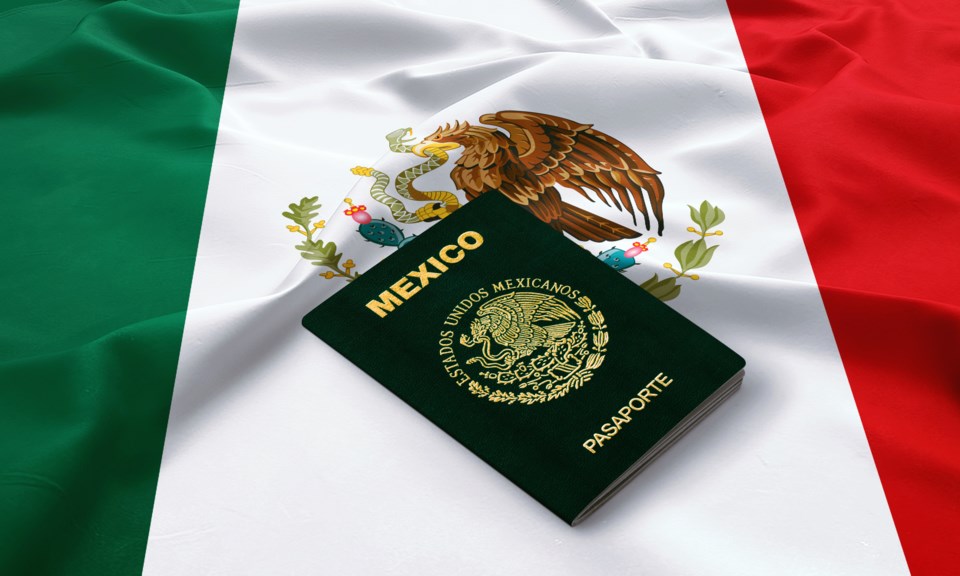Changes to Canada’s visa requirements for Mexicans could have a negative impact in Whistler, particularly with Semana Santa, a popular Mexican vacation time, just weeks away.
Prior to the federal government’s Feb. 29 announcement, Tourism Whistler (TW) was forecasting visitation from the Mexican market to be the strongest on record this winter, with Mexican room nights up 51 per cent year over year, surpassing pre-pandemic performance by 18 per cent.
“The Mexican visitor market is extremely important to Whistler, and is one of the resort’s highest-yielding markets in terms of overall tourism spending, which supports our retail, restaurant, accommodation, activity and transportation sectors,” said TW’s president and CEO, Barrett Fisher.
“Demand from the Mexican market has been a shining star for Whistler’s international tourism performance this season, with demand from other key international markets such as the U.K. and Australia still trailing behind pre-pandemic levels and the U.S. market continuing to rebound slower than originally anticipated.”
The Feb. 29 announcement from Immigration Minister Marc Miller effectively reinstated visa requirements for Mexican citizens originally lifted by Prime Minister Justin Trudeau in June 2016.
The ministry cited an increase in asylum claims made by Mexican citizens that are refused, withdrawn or abandoned as the catalyst.
“Any adjustments to Canada’s travel requirements are made to preserve the integrity and sustainability of our asylum and immigration system,” Miller said at a news conference on Feb. 29. “Most asylum claims from Mexico are either rejected by the Immigration and Refugee Board of Canada or withdrawn or abandoned by the applicant, and so the change was needed.”
The changes, effective immediately, cancel all electronic travel authorizations (eTAs) held by Mexican citizens, except for those with work or study permits. Most Mexicans will now require a temporary resident visa (TRV)—a lengthier, more involved, and more costly application process—to enter Canada.
Some notable exceptions could spell relief, however: Mexican citizens who hold a valid U.S. non-immigrant visa or have held a Canadian visa in the past 10 years and are travelling by air on a Mexican passport will still be able to apply for an eTA, the government said.
“With the high number of Mexican citizens currently holding U.S. visas, the majority will continue to enjoy visa-free travel to Canada. Those who do not meet these conditions will need to apply for a Canadian visitor visa,” reads a release from Immigration, Refugees and Citizenship Canada.
According to Brooke Finlay, immigration consultant with Navio Immigration (formerly Whistler Immigration), Mexican visitation to Whistler may be “largely unaffected” by the changes, but the resort may see a decrease in visitors from Mexico this Easter from those who do not qualify for an eTA.
“A larger impact might be on businesses that recruit employees from Mexico. Those workers will no longer be able to apply for their work permits at a port-of-entry (i.e. an airport or land border), as the ability to apply at a port-of-entry is reserved for citizens of countries who are TRV-exempt,” Finlay said.
“Instead, these workers will need to apply for work permits from Mexico (or a third country where they have legal temporary resident status or citizenship) and wait for an approval before travelling to Canada. Work permit applications submitted to the Visa Office in Mexico are taking approximately four weeks to process. I suspect this timeframe will increase as there will be an influx of applications to this office with the recent changes.”
The partial concessions offered by the federal government are encouraging, Fisher said.
“However, we are concerned about potential delays for those visitors who do not hold a U.S. visa, or for families where some members hold a U.S. visa and other members do not—especially with imminent bookings for this winter season,” she said.
TW’s travel trade team is working closely with its Mexican tour operators to support them with as much information as possible to in turn assist their clients, Fisher added.
Whistler is in the business of welcoming guests from around the world, “and so we don’t want to add barriers to travel,” said Louise Walker, executive director of the Whistler Chamber of Commerce.
“Some businesses are still recovering from the travel restrictions implemented during the pandemic, others have seen recent business levels soften, and so it’s important that any new systems or processes avoid deterring potential visitors,” she said.
“The measures are quite immediate, so we can monitor the impact.”
Looking more generally, Whistler’s overnight visitation is down slightly compared to last winter, “but we are still forecasting a top-five performance in overnight stays, which is extremely positive given this season’s challenging weather and lower-than-average snow conditions,” Fisher said.
“The significant recent snowfalls, however, fare well for a strong March and April, and positive conclusion to the winter season.”



